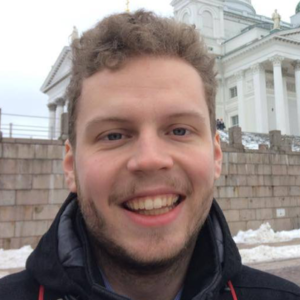
Elias Edefors is currently pursuing a master’s degree in Biblical exegesis of the Hebrew Bible at Uppsala University and is aspiring to become ordained as a minister in the Church of Sweden. Among his interests are Jewish-Christian dialogue, biblical Hebrew and philosophy of religion. He is also an avid traveller, and he enjoys experiencing different cultures and cuisines (and he is especially looking forward to the world famous falafel of Jerusalem). Thanks to the generous Wergeland and Holst Scholarship, he will endeavour to gain a deeper understanding of Jewish life and culture in Israel, and he is hopeful that he will be able to benefit from this experience in his future work in the Church of Sweden, building deep and meaningful Jewish-Christian relations.
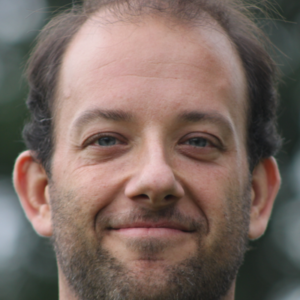
Thomas Fahrenholz from Uppsala has studied comparative linguistics, modern and classical languages. Professionally, he is a union ombudsman, and carries a regional responsibility regarding questions of equal treatment and non-discrimination. He has a lifelong interest in Jewish matters, both religious and secular, and after having traveled to Israel a few times he has been taking Hebrew evening classes at Paideia, the European institute for Jewish studies in Sweden. Thanks to the fantastic possibility offered by the Wergeland and Holst Scholarship, he hopes to gain increased cultural insights as well as improve his Hebrew substantially after the ulpan course.
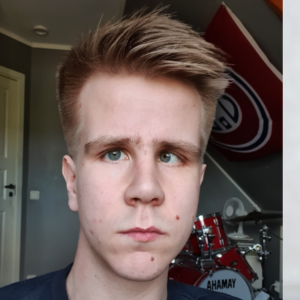
Samuel Lehtinen is a student at Lund University with two semesters of Modern Hebrew under his belt, along with one semester of Linguistics. Since his early teens he has had a special interest in languages and their respective cultures. By taking advantage of the opportunities given by Thanks To Scandinavia, he will attend Summer Ulpan in Jerusalem to expand his knowledge of both the Hebrew language and society in Israel. By doing this he aims to pursue studies in Middle Eastern conflicts in Copenhagen, focusing on the Israel-Palestine conflict.
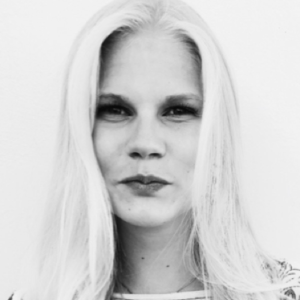
Hanna Olofsson from Sweden is studying towards a BA in Political Science with a focus on security and crisis management at the Swedish Defence University. Hanna has a special interest in terrorism and violent extremism and previously attended King’s College to study profiling and psychology of terrorism. She also wrote her bachelor thesis on a governance aspect of counter-terrorism in collaboration with the Centre for Asymmetric Threats Studies in Stockholm. With the support of the TTS scholarship, Hanna will be attending the summer course “Hamas and ISIS: Radical Islamic Movements in a Changing Middle East”. She hopes to gain a deeper knowledge on the diversity of modern Islamism and Jihadism and how it influences political and militant behavior.
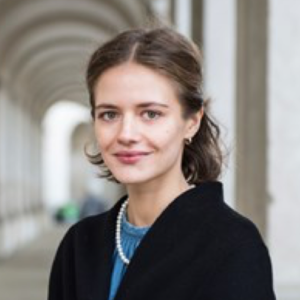
Karen Ornat from Denmark is studying towards a BA in Middle Eastern Studies and Modern Hebrew at The University of Copenhagen. Karen has a special interest in Zionism, historiography and contemporary Israeli identities. Thanks to the TTS scholarship she will attend a Modern Hebrew Ulpan. She hopes that by improving her Modern Hebrew she will gain a better understanding of all aspects of the Israeli society.
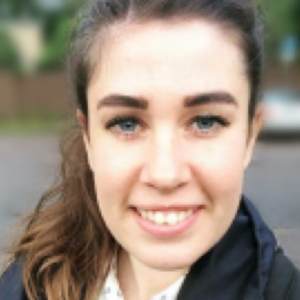
Julia Sahlström is currently a researcher at the Swedish National Council for Crime Prevention. She has masters degrees in Holocaust and Genocide Studies and in Political Science from Uppsala University. She has done research on anti-Semitism and the Holocaust, and more specifically research regarding the Jewish Community in Sweden. Her ambitions are to continue working with research on anti-Semitism and the Holocaust.
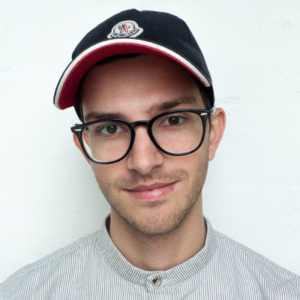
Christophe Viés is studying towards a BA in Functional-Cognitive Linguistics at the University of Copenhagen. He has a keen interest in comparative Semitic linguistics, and he is particularly interested in morphophonology and phonotactics. Thanks to the TTS Wergeland and Holst scholarship he will attend a summer ulpan at the Hebrew University of Jerusalem to further develop his knowledge of the Hebrew language. He believes that a Hebrew course in Israel will greatly help him improve his understanding of the complex interactions between phonological and morphological processes in Modern Hebrew.